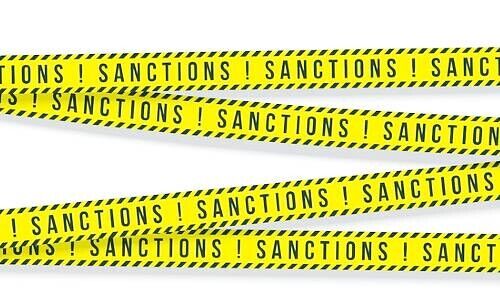The side effects of sanctions against Russia are pushing banks and authorities to the limit and hampering the financial system. finews.ch spoke to a former UBS executive who is working on a path out of the compliance nightmare.
Enforcing sanctions against Russia and Belarus is pushing authorities to the limit. As the State Secretariat for Economic Affairs (Seco), entrusted with the task in Switzerland, reported Thursday, extra positions had to be created to deal with the situation. Federal employees are still sitting on a mountain of reports in need of processing which came in by the thousands since sanctions began.
«The review means a great deal of time and resources for Seco,» officials reported.
Compliance Overload
Among banks, which have to report Russian deposits of more than 100,000 francs, the situation is not any easier. Hardly anyone wants to run the risk of being pilloried internationally for Russian money. At the same time, industry voices say compliance is running at full speed, as Ralph Kreis (pictured below) confirms to finews.ch.
«With the Ukraine war and the sanctions imposed by the West, the list of sanctioned Russian individuals and organizations again swelled massively, from around 2,700 to now 12,700 entries across the most important lists,» he explains. For the banks' compliance teams, this meant a workload they could barely handle, especially at the beginning.

(Image: Alix Partners)
A long-serving executive of UBS, he knows the business inside and out. With consulting firms Boston Consulting Group (BCG) and Alix Partners, he has closely followed the industry and is now a chief financial officer and deputy CEO of startup GSS, which plans to begin operations next year. It promises to provide banks with significant relief in dealing with sanctions.
If all goes according to plan, GSS will give the industry its first industry solution for automating sanctions checks.
Concerned Stability Watchdogs
With the sanctions against Russia and Belarus, the issue has gained urgency outside of Switzerland as well. The stresses to which the financial system is exposed as a result of the numerous regimes that have now been put in place have now brought the influential Financial Stability Board (FSB) at the Bank for International Settlements (BIS) in Basel onto the scene.
It is estimated that major international banks alone have to examine between 20 and 40 billion transactions a year for sanctions violations. Assuming a median alert rate of 5 percent, 1 to 2 billion transactions must be manually checked to determine whether a sanctioned party is involved.
If parties from regions such as the Middle East are involved, the alert rate can rise to 15 percent.
99 Percent False Alarm
Considering that 99 percent of alerts are false positives, it underscores just how enormous the additional workload is for the financial system, not to mention frustrating. Frequently, the alerts that make compliance departments' lights flash seem downright ridiculous.
For example, the term «Scuba-diver» may refer to the US-sanctioned «Cuba,» the first name «Miranda» to Iran. And Shiraz is a type of grape, but also a city in the Mullah state on the Persian Gulf, all of which could trigger alarms.
Massive Delays
For the banks and their customers, this is no laughing matter. Quite the contrary. Sanctions regulations demand every single transaction be examined by every financial actor involved, regardless of the amount involved, and may only be triggered when the findings are clear. Unknown but suspicious parties must be painstakingly tracked down through «request of information» to counterparties.
«It is assumed that every fourth transaction is delayed by more than 24 hours because of the sanctions,» Kreis reports.
Live Next Year
While financial players cannot tinker with the sanctions regimes, they can try to spread the implementation burden across more shoulders. The problem calls for an industry solution. Kreis says this was apparent years ago, but not possible at the time to develop an industrial solution meeting the requirements for lack of technology.
With the advent of cloud solutions and machine learning, these hurdles have been overcome, and regtech GSS is taking advantage. Two years ago, three international banks approached Alix Partners to conduct a feasibility study. Meanwhile, Alix spinoff GSS is working with several banks on a proof of concept scheduled to go live next year.
Smart Machines
In the process, the startup will take over the sanctions checks that can be automated and the matching of transactions with the current sanctions lists. The plan is for institutions to fully outsource this step to GSS and shut down their internal systems. Similar to a tool like Google translate, the benefit of the platform is the more users it has and the more transactions are fed in, the more the machines learn and false positives can be discarded.
«On the one hand, GSS provides a platform for matching sanctions lists using state-of-the-art technology. On the other hand, we have developed standards with the banks as to what result they expect from this matching,» says Kreis. GSS is now in talks with more than 30 institutions.
Little Competition
Even before launch, the company has grown considerably, with around 130 internal and external staff. Its headquarters are in London, and further locations relevant financial centers are planned. If the Kreis is to be believed, GSS does not have any direct competitors, apart from the TSS service of the Swift financial data network and, of course, the compliance departments of the banks themselves.




































